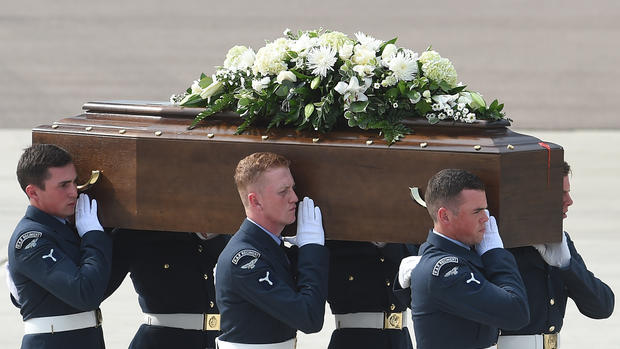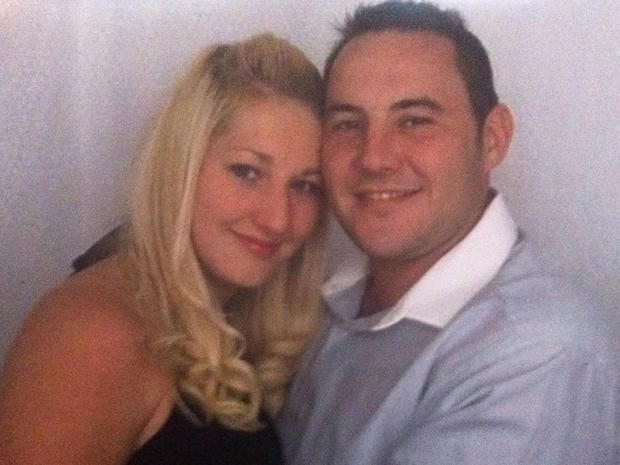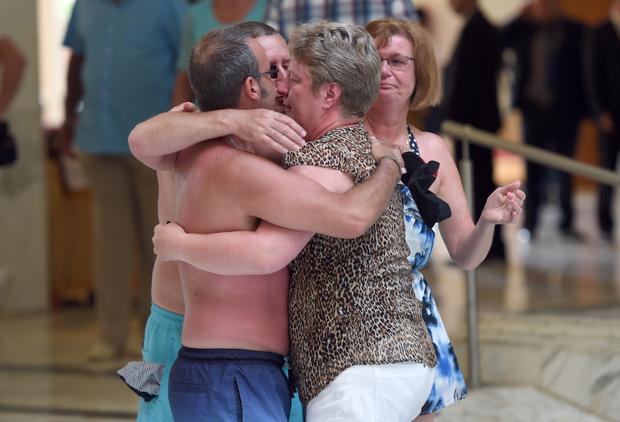Portraits of Tunisian terror attack victims begin to emerge
SOUSSE, Tunisia -- A young man pulled a Kalashnikov from a beach umbrella and sprayed gunfire at European sunbathers at a Tunisian resort, killing at least 37 people - one of three deadly attacks Friday from Europe to North Africa to the Middle East that followed a call to violence by Islamic State extremists.
The Health Ministry said among the 37 dead included Tunisians, British, Germans and Belgians, without giving a breakdown.
The Irish Times reports one of the victims was an Irish national, Lorna Carty, a nurse on vacation with her husband. The Times reports she had traveled to Tunisia with her husband after he gave her the trip as a present. He had recently underwent heart surgery. She has two children, Hazel, 18, and Simon, 21.
In a statement Irish Minister of Foreign Affairs and Trade, Charles Flanagan, confirmed the death of an Irish citizen.
"I condemn unreservedly the terrorist attacks in Tunisia, Kuwait and France today. Sadly, I can confirm that an Irish citizen has been killed in the attack in Sousse , Tunisia," he said.
Others began Tweeting about missing family members who they said had been in Tunisia at the time of the attack, but hadn't been heard from.
British Foreign Secretary Philip Hammond says at least five Britons were killed but expected to toll to rise because a high proportion of the dead were believed to be British.
Heroes also began to emerge in the midst of such devastation. The BBC reports, a Welsh tourist used his body as a shield to protect his Fiancé when the shooting on the beach began. Saera Wilson, 26, the Fiancé of gas engineer Matthew James, 30, said he is alive, but his pelvis is shattered after being shot three times.
The shootings in the Tunisian resort of Sousse happened at about the same time as a bombing at a Shiite mosque in Kuwait and an attack on a U.S.-owned factory in France that included a beheading. It was unclear if the violence was linked but it came days after the IS militants urged their followers "to make Ramadan a month of calamities for the nonbelievers." In all, the assailants killed at least 65 people.
The attack in Tunisia, the country's worst ever, comes just months after the March 18 massacre at the national Bardo museum in Tunis that killed 22 people, again mostly tourists, and has called into question the newly elected government's ability to protect the country.
"Once again, cowardly and traitorous hands have struck Tunisia, targeting its security and that of its children and visitors," President Beji Caid Essebsi told reporters at the RIU Imperial Marhaba hotel, near the beach rampage site.
Essebsi promised "painful but necessary" measures, adding: "No country is safe from terrorism, and we need a global strategy of all democratic countries."
British tourist Gary Pine told AP he was on the beach with his wife around noon when heard the shooting. They shouted for their son to get out of the water, grabbed their bag and ran for the hotel. Their son told them he saw someone shot on the beach.
There was "sheer panic" at the hotel, Pine said. "There were a lot of concerned people, a few people in tears with panic and a few people - older guests - they'd turned their ankles or there was a few little minor injuries and nicks and scrapes."
Elizabeth O'Brien, an Irish tourist who was with her two sons, told Irish Radio she was on the beach when the shooting began.
"I thought, 'Oh my God. It sounds like gunfire,' so I just ran to the sea to my children and grabbed our things" before fleeing to their hotel room, she said.
The FBI and U.S. Department of Homeland Security issued a bulletin Friday warning of attacks against law enforcement officers and the military during the July 4th holiday.


